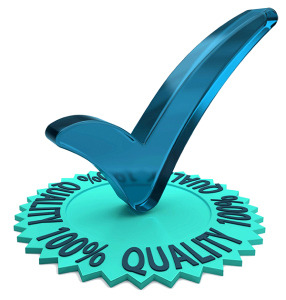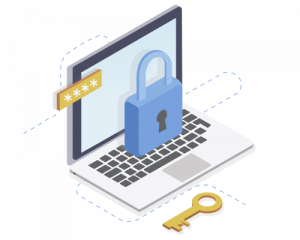The Common Technical Document (CTD) and its electronic counterpart, the eCTD, are information about a drug’s overall quality, toxicology, safety, and efficacy. CTDs are submitted to regulatory authorities, such as the Food and Drug Administration (FDA), the European Medicines Agency (EMA), the National Medical Products Administration (NMPA), and Health Canada when compiling applications for new drugs, making CTD and eCTD translations essential for companies bringing new medications to market. As the world becomes increasingly reliant on the speed and efficiency that digital communication can provide, the eCTD has emerged to pursue synchronicity and continuity in electronic submissions of the CTD. Both the CTD and eCTD are composed of five modules. While Module 1 is technically region-specific and not an official part of the CTD, Modules 2-5 cover clinical and nonclinical data, including quality, toxicology, and pharmacology or clinical trial reports.
As the demand for pharmaceutical products increases globally, the need for CTD and eCTD translations is growing. Because CTDs and eCTDs are highly specialized documents with high volumes and tight deadlines, finding the right localization partner to translate them accurately and efficiently is vital. Mistakes in translation, incorrect formatting, or missed deadlines can increase time to market, potentially costing pharmaceutical companies millions in lost revenue. To help companies navigate this challenge, CSOFT Health Sciences’ global network of 10,000+ native linguists and CTD/eCTD subject matter experts with familiarity in all modules, including CMC, PK/PD, Toxicology, Clinical Written, and Tabulated Summaries, CTD formatting services, and technology-driven systems provides life science companies with highly accurate and time efficient CTD and eCTD translations in over 250 languages.
Our Methodology for CTD and eCTD Translations
CSOFT Health Sciences specializes in CTD and eCTD translation projects. Our professional team has in-depth knowledge of recent FDA, EMA, TGA, and NMPA policy reforms and regulatory requirements. In addition, we have a stringent quality control methodology for dossier translations designed to help global drug developers mitigate risk while seeking approval from global regulatory bodies.
Learn more about the methodologies we employ.
Regulation-Compliant Formatting for CTD and eCTD Submissions
Regulatory authorities have strict requirements for CTD and eCTD submissions, often extending to language requirements and translations. If documents are not correctly formatted, pharmaceutical companies may experience delays in time to market, leading to severe revenue losses. CSOFT Health Sciences’ desktop publishing team (DTP) engineers provide regulation-compliant formatting support to ensure on-time submission for the best ROI for pharmaceutical companies. Specifically, CSOFT’s team of DTP engineers can offer the following formatting services for CTD and eCTD submissions:
- Hypertext, Index, and Bookmark Creation
- Internal Hyperlinking and DocumentCross-Referencing
- Table of Contents, Sections, Tables, Figures, References, and Appendices
- Embedded Fonts
- Consistent Headers, Footers, and page orientation
- Converting PDF documents into MS Word Files with Optical Character Recognition (OCR)
Learn more about our multilingual desktop publishing (DTP) services.
Dossier Translation Services
Dossier translation helps companies gain timely regulatory approval to market new medical products globally. A clinical trial dossier contains essential documents like clinical trial applications, investigational product dossiers, and product characteristics summaries. Translating these dossier materials into required languages enables pharmaceutical, medical device, CRO, and academic institution clients to meet regulatory submission standards in the US, EU, and beyond. CSOFT Health Sciences offers full-service dossier translation and a range of solutions for multilingual clinical trials to support global market access.
Learn more about our dossier translation services.
Pharmacovigilance Translation Services
Pharmacovigilance translations are essential for ensuring accurate documentation and resolution of adverse drug reaction cases in global drug development. As the pharmaceutical market expands internationally, timely and precise translations of key pharmacovigilance documents, such as adverse event (AE) reports and individual case safety reports (ICSRs), are critical for successful eCTD and CTD submissions to regulatory agencies, safeguarding patients and meeting compliance requirements worldwide.
Learn more about our pharmacovigilance translation services.
Quality Assurance
CSOFT Health Sciences has developed a process for quality assurance to ensure that every medical translation project meets quality standards in a cost-effective and timely manner. We are certified in ISO 17100:2015, ISO 9001:2015, and ISO 13485:2016 to ensure our customized solutions meet global regulatory requirements. Our subject matter expert linguists have at least seven years of experience and work with in-country reviewers and project style guides to meet industry standards. CSOFT offers an online translation management ecosystem for one central location to leverage real-time translation memory and terminology management through our innovative cloud-based technology. Every step of the way, CSOFT has you covered.
Learn more about our quality assurance process.
Data Security
With over 20 years of experience in medical translation, CSOFT Health Sciences understands the importance of data security to our clients, and we take nothing for granted when confidentiality is a concern. Our well-documented and fully traceable information data security policies, checklists, and quality records leverage the best practices of ISO 27001. They are designed to protect everything from source data to translations. From our 24/7/365 data monitoring and advanced encryption to our access control measures, you can be sure that your project data is safe from start to finish.
Learn more about how CSOFT prioritizes data security.

